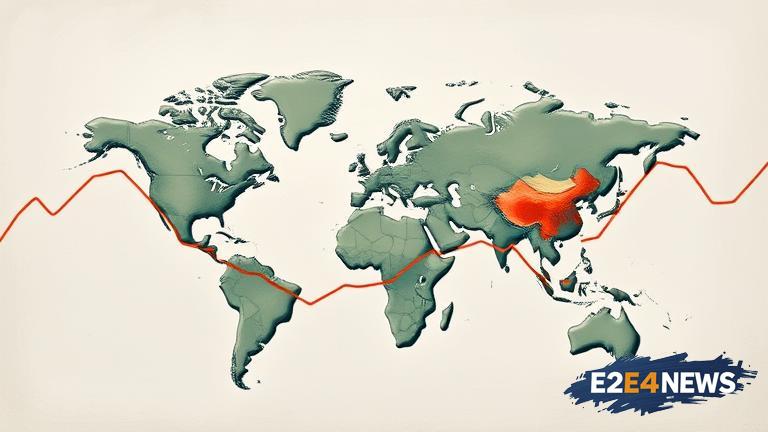The global economy is currently experiencing a period of uncertainty, with rising interest rates and inflation sparking concerns among investors and consumers. This uncertainty is being fueled by a combination of factors, including the ongoing COVID-19 pandemic, the war in Ukraine, and the resulting supply chain disruptions. As a result, many countries are experiencing high levels of inflation, which is eroding the purchasing power of consumers and making it more difficult for businesses to operate. In an effort to combat inflation, many central banks have raised interest rates, which is making borrowing more expensive and slowing down economic growth. The rise in interest rates is also having a negative impact on the housing market, as higher mortgage rates are making it more difficult for people to buy or sell homes. Furthermore, the strong US dollar is making it more difficult for countries with weaker currencies to import goods, which is exacerbating the inflation problem. The situation is being closely watched by investors, who are becoming increasingly risk-averse and are seeking safe-haven assets such as gold and bonds. The uncertainty in the global economy is also having a negative impact on trade, as countries are becoming more protectionist and are imposing tariffs on imported goods. This is leading to a decline in international trade, which is having a negative impact on economic growth. In addition, the rise in interest rates is making it more difficult for companies to raise capital, which is slowing down investment and innovation. The situation is also having a negative impact on employment, as companies are becoming more cautious and are reducing their workforce. The global economy is also facing a number of other challenges, including climate change, cybersecurity threats, and geopolitical tensions. These challenges are all interconnected and are having a cumulative impact on the global economy. As a result, it is becoming increasingly difficult for policymakers to make decisions, as the situation is constantly evolving. The International Monetary Fund (IMF) has warned that the global economy is facing a number of risks, including a slowdown in economic growth, a rise in inflation, and a decline in trade. The IMF has also warned that the situation could get worse if policymakers do not take action to address the underlying causes of the uncertainty. In order to address the uncertainty, policymakers will need to take a coordinated approach, which includes monetary policy, fiscal policy, and trade policy. They will also need to invest in education and training, in order to equip workers with the skills they need to succeed in a rapidly changing economy. Additionally, policymakers will need to take action to address the root causes of the uncertainty, including the COVID-19 pandemic, the war in Ukraine, and climate change. This will require a sustained effort and a commitment to working together to address the global challenges. The situation is complex and multifaceted, and it will require a comprehensive and coordinated response. The global economy is at a critical juncture, and the decisions that are made in the coming months will have a profound impact on the future. It is essential that policymakers take a long-term view and prioritize sustainability and equity, in order to ensure that the global economy is able to recover and thrive in the years to come. The global economy is facing a number of challenges, but with the right policies and a commitment to working together, it is possible to overcome them and create a more prosperous and equitable future for all. The current situation is a wake-up call for policymakers, and it is essential that they take action to address the underlying causes of the uncertainty. The global economy is a complex system, and it requires a comprehensive and coordinated approach to address the challenges that it is facing. The situation is constantly evolving, and it is essential that policymakers are able to adapt and respond to the changing circumstances. The global economy is at a crossroads, and the decisions that are made in the coming months will have a profound impact on the future. It is essential that policymakers prioritize sustainability and equity, and take a long-term view, in order to ensure that the global economy is able to recover and thrive in the years to come.
